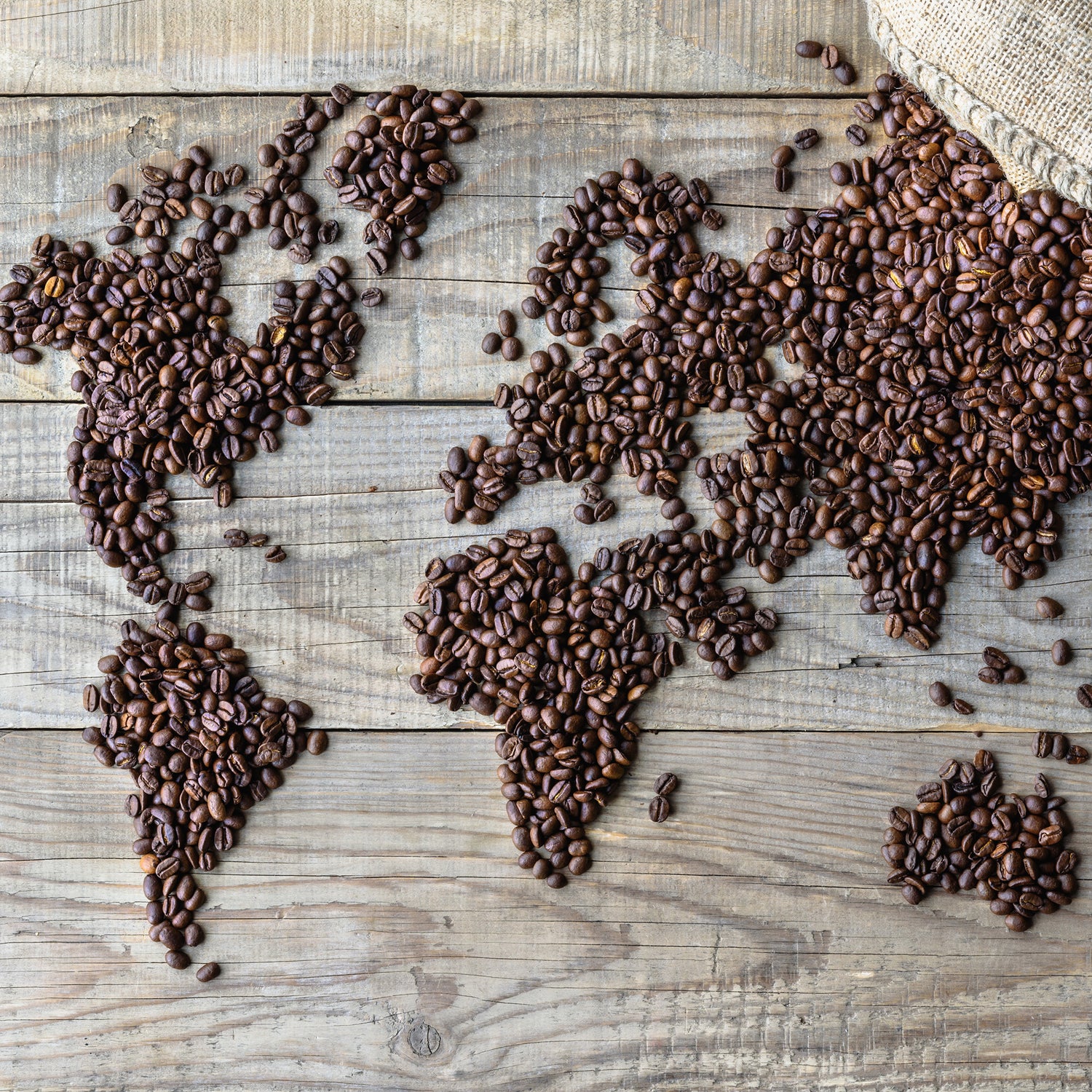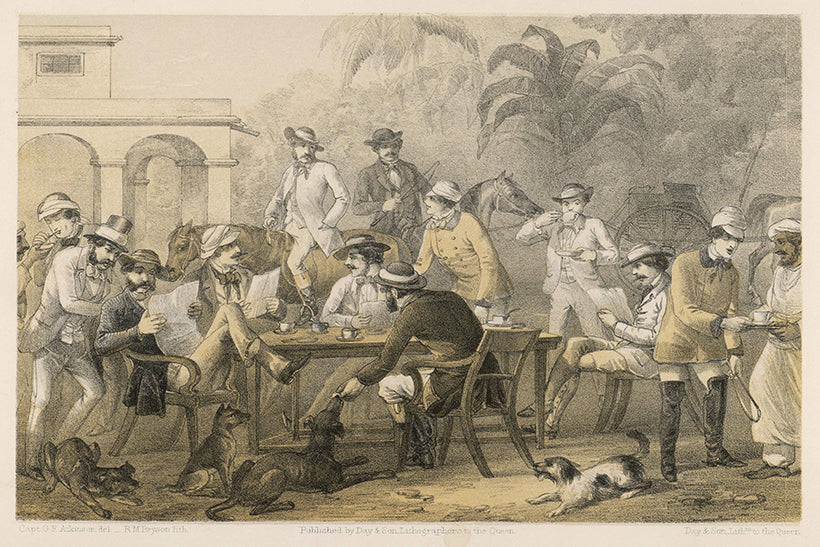
Coffee Myths & Legends
Coffee dates back to around 850 CE and maybe earlier, with a number of legends surrounding its first use. It is most likely to have originated in Ethiopia and Yemen, where a story about a farmer (Kaldi) and his energized goats has become the stuff of legend.
As well as Kaldi's apocryphal story, there are stories of a Moroccan monk eating coffee berries, a starving Sheikh roasting the beans in a desert cave, and other ancient tales.
History
The earliest evidence of people trading and drinking coffee appears in the late 15th century, as coffee began to be exported from Ethiopia to Yemen and Somalia. It was primarily consumed in the Islamic world where it originated, and and was directly linked to religious practices, helping drinkers fast in the day and stay awake at night during Ramadan.
By the early to mid 1500's, coffee houses had spread to Egypt, Syria, and Istanbul, the capital of the Ottoman Empire. During this period it was banned (from 1511-1524) due to its stimulating effect, by conservative imams in Mecca, and similarly in Cairo in 1532.
During the 16th century, coffee consumption spread throughout the Middle East, then on to Italy, and then the rest of Europe. Coffee plants were exported by the Dutch to South East Asia, and the Americas.
Europe
The first European coffeehouse opened in Venice in 1645 after being introduced to Malta through imprisoned Turkish slaves. News of coffee also came to Europe through travelers returning from the Middle East. The German physician and botanist Leonhard Rauwolf in 1573 described coffee as, "a very good drink they call Chaube that is almost as black as ink and very good in illness, especially of the stomach. This they drink in the morning early in open places before everybody, without any fear or regard, out of China cups, as hot as they can, sipping it a little at a time."

The first coffeehouse in England opened in St Michael's Abbey in 1652 by Pasqua Rosée, the servant of a trader in Turkish goods. Queen's Lane coffeehouse in Oxford, England, is the oldest continually working coffeehouse in Europe. Founded in 1654, it has been serving coffee prior to the naming of New York, the Great Plague and the Fire of London, and is still going strong today.
Americas
In 1720, coffee seedlings were brought to the Caribbean by Gabriel de Clieu, a French naval officer. The success of growing coffee in this climate mean that 50 years later, coffee cultivation had spread to Haiti, the Dominican Republic, Mexico, and other parts of Latin America. Coffee cultivation in Brazil didn't take off until after independence in 1822, and it became the largest coffee producer in the world by 1852. Currently Brazil produces about 7.8 billion pounds of coffee a year, a third of the world's supply.
After the Boston Tea Party of 1773, large numbers of Americans switched to drinking coffee, because drinking tea had become unpatriotic. This event led to escalating tensions, and two years later the American Revolutionary War broke out.

Asia
Coffee was introduced to India around 1670 by Babu Budan, a 16th century Sufi (Islamic Mystic), who brought beans from Yemen. Plantations are now well established in southern India, with Arabica grown in the upper hills, and Robusta grown at lower levels.
The Dutch introduced coffee to Japan in the 17th century, but the first European style coffeehouse didn't open until in Tokyo in 1888. They also brought coffee to Indonesia during the same period, and it is now the fourth largest coffee producing country in the world.
The coffee plant was introduced to the Philippines in 1740 by a Spanish Franciscan Friar, and it is one of the few countries that grows all four main varieties, Arabica, Robusta, and the lesser known Liberica, and Excelsa.
Vietnam has also become a significant producer of coffee, since it's introduction by the French in 1857. It is now the second largest producer in the world.
Summary
So coffee has been around for a very long time, and has been instrumental in creating a culture of discussion and community around the world. If there's one thing I miss during this pandemic, it's that warm and inviting coffeehouse atmosphere.
Share your thoughts and leave a comment.



